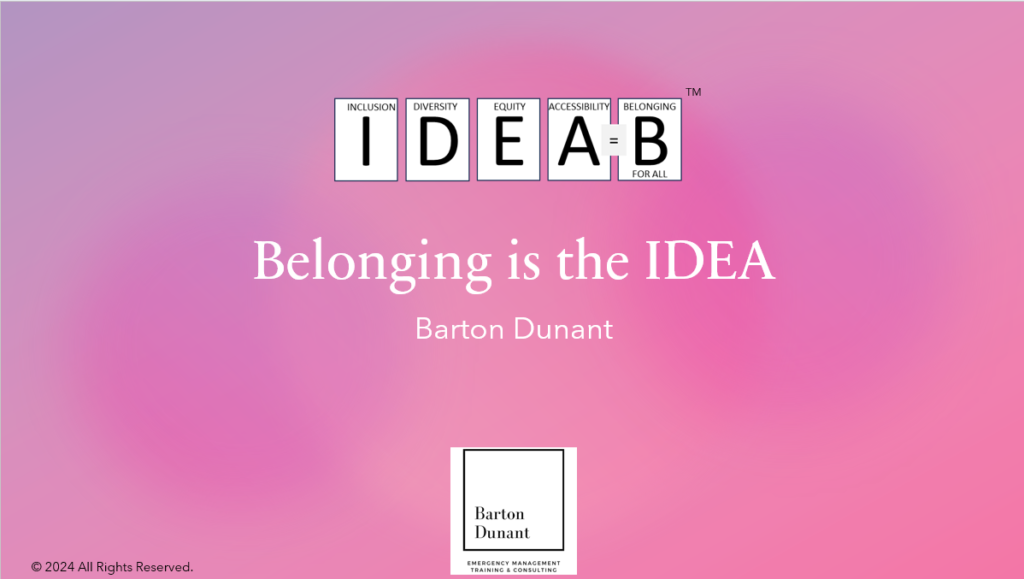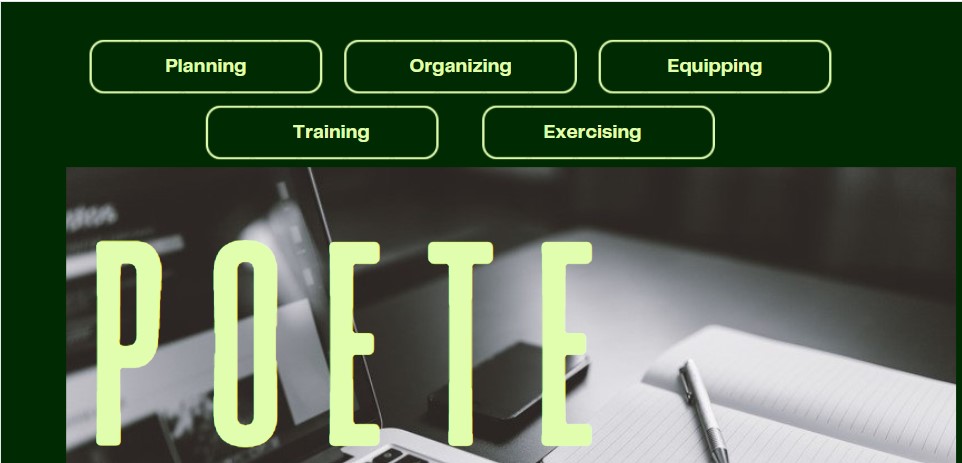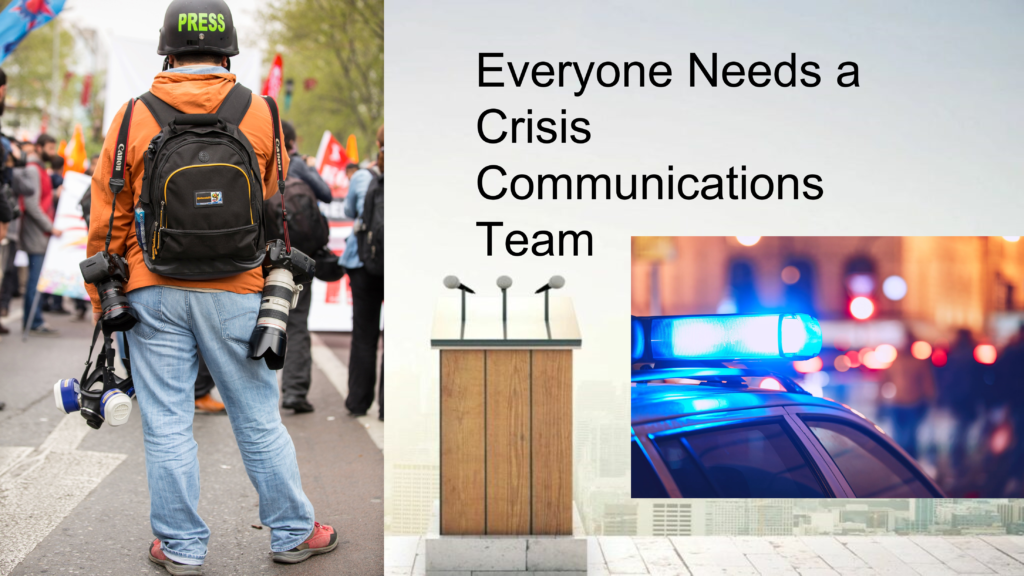100IB – IDEA Equals Belonging
Welcome to Barton Dunant’s ‘IDEA Equals Belonging’ self-paced web course.
This course from Barton Dunant covers an introduction to Inclusion, Diversity, Equity, and Accessibility. It is designed as a General Management (GM) introduction to these concepts for any type of organization. Your organization may have different policies, procedures, etc. and your geographic jurisdiction may have different laws, all of which may apply and override anything in this course. This course will not provide any legal advice, and its use is for informational purposes only.
Inclusion, Diversity, Equity, and Accessibility (IDEA): Building a More Just and Equitable World
The concept of IDEA encompasses four interconnected principles:
1. Inclusion: This refers to the active, intentional, and ongoing effort to ensure that everyone, regardless of background, identity, or ability, feels welcome, valued, and able to participate fully in all aspects of life. It’s about creating spaces where everyone has the opportunity to contribute their unique perspectives and experiences.
2. Diversity: This celebrates the richness of human differences, encompassing aspects like race, ethnicity, gender, sexual orientation, ability, socioeconomic status, age, religion, and more. It recognizes that these diverse perspectives and experiences are a strength, not a weakness, and are essential for innovation, creativity, and problem-solving.
3. Equity: This goes beyond simply treating everyone the same. It acknowledges that systemic barriers and historical injustices have created unequal opportunities for different groups of people. Equity focuses on creating a level playing field by addressing these barriers and ensuring that everyone has the resources and support they need to succeed.
4. Accessibility: This refers to the removal of physical, communication, and attitudinal barriers that prevent people with disabilities from fully participating in society. It encompasses things like building ramps, providing sign language interpreters, and developing websites that are screen reader-friendly. It also includes support for people for whom English is not their first language, and those who are dependent on mass transportation only. Their ability to access goods and services may be different from others, but is no less important – especially for them.
Why is IDEA important?
By embracing IDEA, we can create a world that is:
- More just and equitable: Everyone has the opportunity to thrive and reach their full potential.
- More innovative and successful: Diverse perspectives and experiences lead to better solutions and outcomes.
- More reflective of the world around us: Our communities, institutions, and workplaces should mirror the diversity of the world we live in.
- More welcoming and inclusive: Everyone feels valued and respected for who they are.
Taking action on IDEA:
There are many ways to get involved in promoting IDEA:
- Educate yourself: Learn more about the different aspects of IDEA and the challenges faced by different groups of people.
- Challenge your own biases: We all have unconscious biases, but it’s important to be aware of them and work to overcome them.
- Speak out against discrimination and injustice.
- Support organizations that are working to advance IDEA.
- Be an inclusive leader or teammate: Create spaces where everyone feels welcome and valued.
Remember, IDEA is an ongoing journey, not a destination. By working together, we can create a more just and equitable world for all.
Once you have registered for the course, please follow all of the chapters in order. You may see that the chapter is marked as ‘complete’ without your taking the quiz – that is not the case. You need to complete all quizzes for all chapters. If you find you are at the end of the course and the ‘final quiz’ does not appear, this is an indication that you are missing something in the steps. The course flows best when done in one ‘sitting’ and progressing through each chapter, bu using the ‘Next Lesson’ button on each page. Thanks!
100IB – IDEA Equals Belonging Read More »




